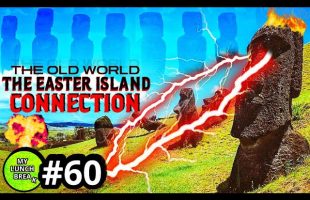In this lecture Jiang Xueqin explores with his Chinese students why the Bronze Age collapsed.
In the year 1200 BCE the world was globalized and prosperous. Nations shared people, ideas, and goods. A few decades later, the Bronze Age collapsed. Mycenaean Greece and Hittite Anatolia were destroyed, and the Sea Peoples ravaged Egypt.
Scholars disagree on what caused this collapse. Some argued it was a northern invasion, while others believed there was a cataclysmic natural disaster. The scholarly consensus now is this systems collapse was brought on by a perfect storm of earthquakes, climate change, and internal revolts.
Jiang Xueqin argues that Peter Turchin’s theory of “elite overproduction” is a more convincing theory. Once vibrant empires had devolved into rentier economies, and had become less resilient against external and internal shocks. Rather than being an outlier, the Bronze Age collapse would find itself repeated throughout human history.



